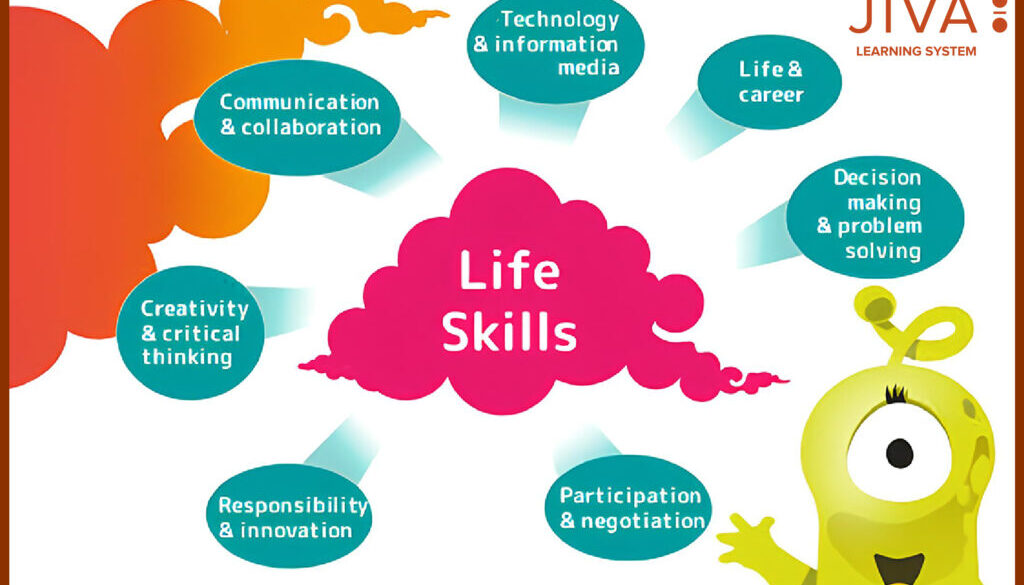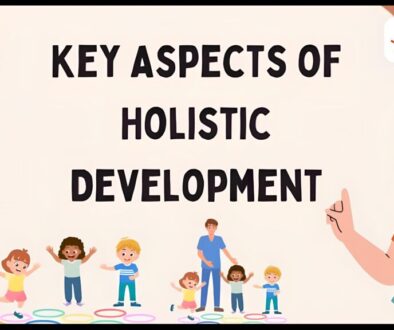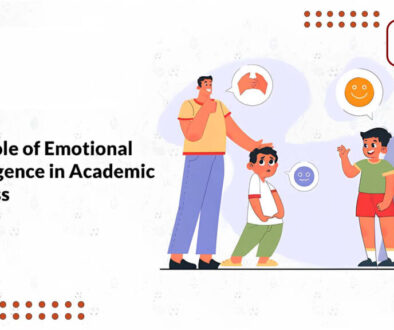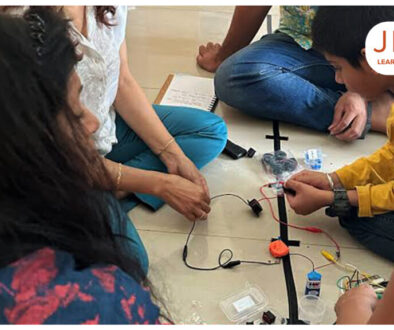Building Strong Foundations: Promoting Life Skills like Cooperation and Resilience in Children
In today’s fast-paced world, academic knowledge alone isn’t enough. For children to flourish in life, they must acquire life skills like problem-solving, communication, cooperation, and resilience. These abilities enable them to overcome obstacles, form deep connections, and thrive in the real world. This blog will discuss the importance of life skills and how to encourage them in day-to-day interactions.
What Are Life Skills?
The abilities we employ to handle the difficulties and responsibilities of daily life are known as life skills. These abilities support our ability to communicate clearly, adjust to changing circumstances, and make deliberate decisions. Life skills, even though academic ones are crucial, guarantee that kids develop into happy, responsible, and well-rounded adults.
Key Life Skills to Promote
Let’s look at some essential life skills that we should focus on teaching children:
- Cooperation
Cooperation means being able to work with others to accomplish a shared objective. It all comes down to listening, sharing, and supporting one another. Learning to cooperate helps kids develop their social skills, work as a team, and complete tasks more quickly—whether in the classroom, at home, or in sports.
How to Promote Cooperation:
- Promote team sports, school projects, and household chores as examples of group activities that require cooperation from kids.
- Teach them the importance of sharing and taking turns. Cooperation can be effectively practiced through group activities like puzzle building or simple board games.
- Be an example of cooperation yourself. Teach them to listen to others communicate ideas clearly and collaborate to find solutions.
- Resilience
The capacity to recover from obstacles or failures is resilience. Since life is full of setbacks, teaching kids resilience helps them remain resilient when things don’t go as planned. Resilient kids are more capable of managing stress, disappointment, and failure.
How to Promote Resilience:
- Assist kids in realizing that learning involves making mistakes. When they make a mistake, support them and urge them to try again.
- Provide them with techniques for resolving problems. They should be encouraged to consider alternative approaches to problems and to concentrate on finding solutions rather than problems.
- Tell about people who have overcome obstacles. Examples from real life, whether they be a well-known athlete, scientist, or a personal acquaintance, can encourage resilience.
- Communication Skills
Clear thought expression and the development of healthy relationships depend on effective communication. Children who are able to communicate well with others are more likely to feel valued and understood, which improves friendships, academic achievement, and future employment prospects.
How to Promote Communication Skills:
- Encourage kids to use words to communicate their thoughts and feelings. How did that make you feel? or What do you think would happen if…? are examples of open-ended questions.
- Show them how to actively listen. Teach them the value of listening carefully to what other people are saying and giving thoughtful answers.
- Engage in role-playing exercises or storytelling exercises. Through these activities, kids can practice speaking and listening while also organizing their thoughts.
- Problem-Solving Skills
Identifying problems and devising solutions is a life skill known as problem-solving. It fosters children’s independence and self-assurance in the face of difficulties.
How to Promote Problem-Solving Skills:
- Give kids easy problems to solve and solicit their answers. As an example, “What could you do to help a friend who is feeling down?”
- Allow kids to solve problems independently. Ask guiding questions to help them consider the problem rather than giving answers right away.
- Promote ingenuity. Since there are frequently multiple approaches to a problem, teach kids that using their imaginations to come up with innovative solutions can result in successful solutions.
- Self-Control
Self-control is the capacity to restrain one’s impulses and feelings. It aids kids in concentrating on their objectives, making wiser choices, and controlling their impulsive reactions in trying circumstances.
How to Promote Self-Control:
- Clearly define expectations and guidelines. Children are more adept at managing their behavior when they are aware of the expectations.
- Have patience. Use games like waiting for your turn or focus-demanding activities like puzzle solving or block building.
- Congratulate kids for exercising self-control. Acknowledging their successful emotional or impulse control motivates them to keep honing this ability.
Why Are Life Skills Important?
Teaching life skills from an early age has long-term benefits for children. These skills help children:
- Build Confidence: Develop Self-Belief: Children gain self-confidence when they understand how to respond to various circumstances.
- Form Positive Relationships: Building strong friendships and familial ties requires collaboration, empathy, and communication.
- Handle Stress: Children who possess resilience, self-control, and problem-solving skills are better able to handle stress and adjust to the ups and downs of life.
- Succeed in School and Life: Life skills are important for future professional success, personal development, and well-being in addition to being helpful in the classroom.
Everyday Ways to Teach Life Skills
- Involve Children in Decision-Making: Give kids a say in decisions like what to eat for dinner, how to dress, and how to arrange their study timetable. They gain decision-making and problem-solving abilities as a result.
- Use Real-Life Situations: There are many chances in life to put life skills into practice. Encourage kids to assist in resolving conflicts at home. Discuss how to deal with a stressful situation in a composed manner.
- Be a Role Model: Kids pick up knowledge from adults. Show them the life skills you want them to acquire, like empathy, patience, and active listening. You set an example for them to follow with your actions.
- Play Games: A variety of games, including board games and group activities, foster life skills like communication, cooperation, and problem-solving. One enjoyable way to practice these abilities is to play games with others.
Conclusion
Children’s development depends on life skills like empathy, self-control, communication, cooperation, resilience, and problem-solving. These abilities enable kids to grow up to be capable, self-assured, and responsible adults who can succeed in all facets of life. Through the active promotion of these life skills in everyday contexts, we give kids the tools they need to thrive in both their academic and personal lives. Promoting these skills guarantees that kids become resilient, considerate, and caring adults who are equipped to handle any difficulties that may arise.




